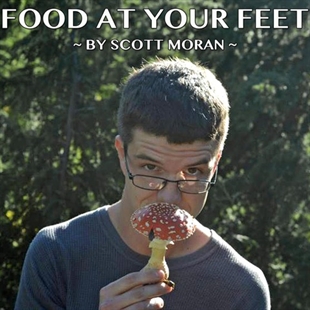
(SCOTT MORAN / iNFOnews.ca)
April 13, 2017 - 12:03 PM
OPINION
Right now, in the Okanagan Valley, the idea of a second bridge crossing is being narrowed down from several concepts to one singular reality. We may not see construction for two or three decades.
The region around the cities of Kelowna and West Kelowna has very limited geography. Between Knox Mountain, Dilworth Mountain, and the various hills and slopes on the west side of the lake, there is no other option than to have the second crossing adjacent to or directly on top of some of our most beloved and iconic regional parks. Obviously this will be very upsetting to anyone who wants to protect our remaining urban wild lands, and I think these days that means everyone.
I want people to see this problem in a new light. Instead of fiercely protecting our dwindling fields, forests, and wetlands, we should be creating more. Any piece of land can be given back to nature. Our park system is so rigid and entrenched with rules and bureaucracy that it is hard to imagine new parks popping up all around us.
We are separate from the parks, and see ourselves as intruders. Instead we should view ourselves as part of the ecosystem and manage ourselves in a way that has the most overall benefits to the earth. It may seem irresponsible to harvest wild edible plants from a pristine setting, but in reality it is the most responsible means of food production. The difference is we see and feel our impact, which almost never happens with anything we consume.
I strongly believe we can live together with nature and encourage a greater abundance of wildlife in our own backyards. The 'look but don't touch' policy of our scraps of nature within the city limits has to go. We need to face the facts and accept our impact on our surroundings and begin experimenting with new types of land management. Food forests can provide a home for wildlife and sustain our need for nutrient rich foods. Permaculture — which translates loosely to permanent agriculture — can be applied in ways to repair the land in a way that promotes diversity and is self - maintaining.
I do not want any of our great wild spaces to disappear, but I also know that people cannot spend their lives in traffic and we desperately need drastic upgrades to our main transportation routes. Let's accept the inevitable and focus on improving the natural setting of the entire valley, not just one hillside.
— Scott Moran is a local forager discovering his own path to food freedom.
We welcome your comments and opinions on our stories but play nice. We won't censor or delete comments unless they contain off-topic statements or links, unnecessary vulgarity, false facts, spam or obviously fake profiles. If you have any concerns about what you see in comments, email the editor.
News from © iNFOnews, 2017